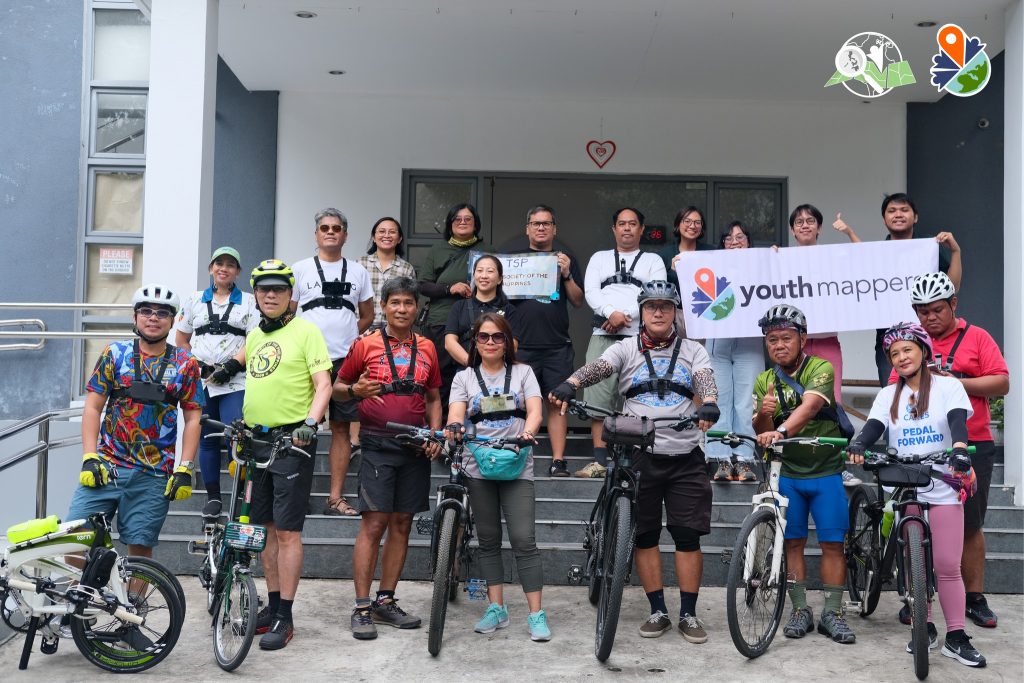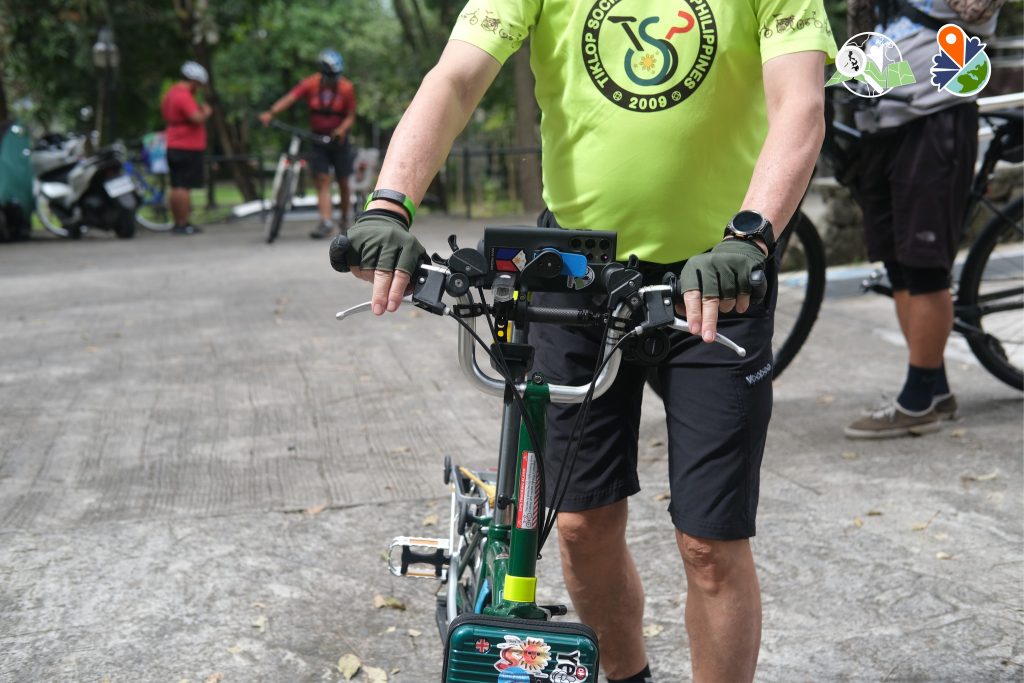Posted by: NOAH WebGIS and UPRI Institution Building Division
Last January 18, 2025, we kicked off the year with our first mapping activity, continuing our meaningful collaboration with Tiklop Society of the Philippines (TSP). Building on the success of last year’s partnership for the “PedalMap” project, this event marked the second in a series of workshops focused on the use of Mapillary for geospatial data collection. This month, we were thrilled to welcome a new partner, the Firefly Brigade, a non-stock, non-profit, and SEC-registered citizen’s volunteer action group founded in 1999. The Firefly Brigade advocates for clean air and a habitable, people-friendly urban environment, aligning perfectly with the goals of our initiative.

Facilitated by the UPRI YouthMappers and initiated as part of UP Resilience Institute’s Institution Building efforts, the activity showcased how cycling can go beyond connecting communities to play a vital role in the creation of valuable geospatial data. Cycling holds the unique potential to contribute to achieving the Sustainable Development Goals (SDGs), particularly those focused on climate action, sustainable urban development, and public health:
- Good Health and Well-being (SDG 3): Cycling promotes physical activity in an accessible and inclusive way, encouraging active lifestyles that benefit overall health.
- Sustainable Cities and Communities (SDG 11): As an alternative to fossil-fueled transportation, cycling reduces traffic congestion, improves air quality, and fosters greener, more livable cities.
- Climate Action (SDG 13): By embracing cycling, we contribute to a low-carbon future, directly reducing greenhouse gas emissions and supporting efforts to mitigate climate change.
Leveraging Geospatial Data for Climate Action
This workshop highlighted the power of imagery collection through tools like Mapillary. As a crowd-sourced platform for street-level imagery, Mapillary enables us to gather detailed, up-to-date geospatial information. Such data proves invaluable in supporting disaster preparedness and response, particularly in post-disaster scenarios. By mapping infrastructure conditions, identifying hazards, and cataloging vital urban infrastructure, we can enhance efforts to build resilient communities.
Cyclists, as everyday users of roads and trails, play a unique role in collecting this data. This initiative demonstrates how everyday actions, such as biking, can contribute to global climate action. The data collected supports long-term urban planning and helps us better prepare for and respond to disasters, enabling efficient recovery and adaptation strategies.

A Shared Journey for Resilience and Sustainability
The collaboration between UPRI, UPRI YouthMappers, and biking groups such as TSP and Firefly underscores our shared commitment to resilience and sustainability. Through initiatives like these, we emphasize that small, collective actions, such as cycling and mapping, can have a profound impact on our communities and the world.
As we continue this journey, we invite everyone to join us in leveraging technology and local action to advance the SDGs, particularly in the face of climate challenges. 🚴♂️📍🌏
